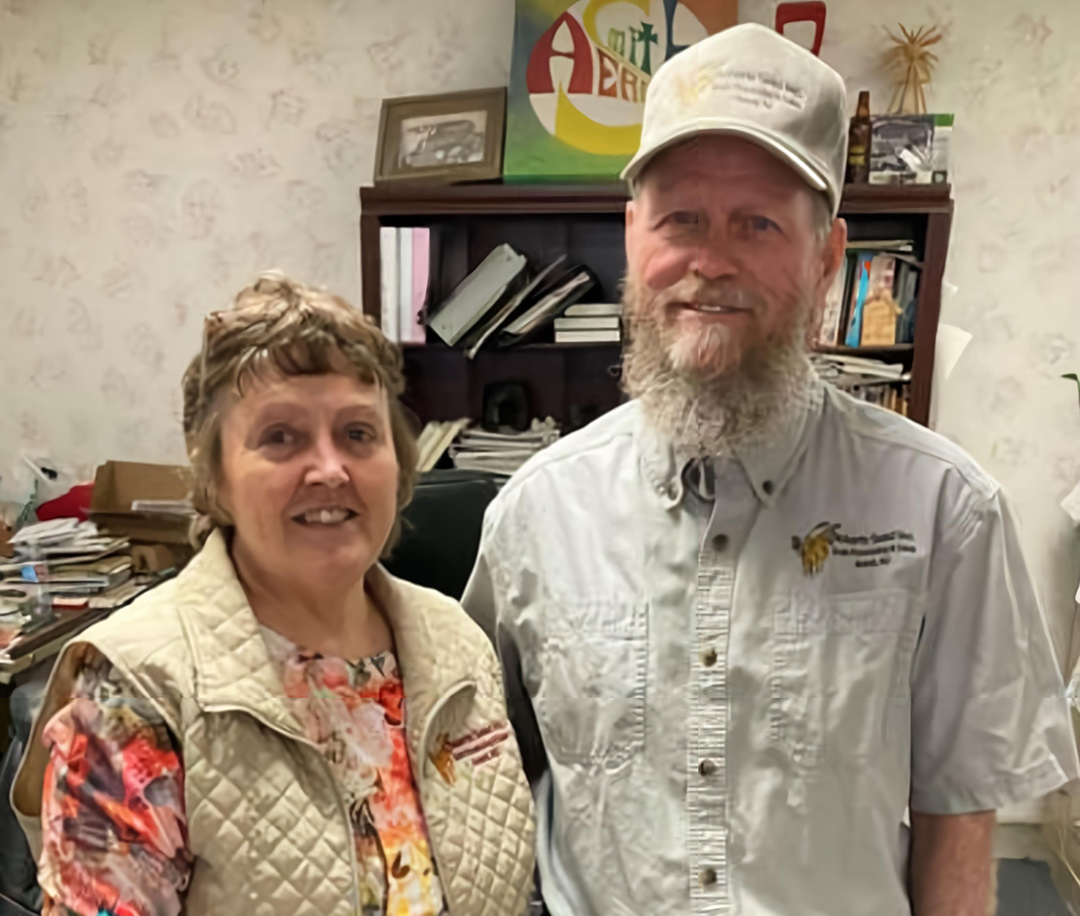Roberts Seed sprouts profits in cleaning organic and non-GMO grain

Published: May 27, 2023
Category: Company Profile
By Mary Jane Skala, Kearney Hub Staff Writer
“When you sit down to dinner, thank a farmer.” So says a sign on a cabinet in the busy office just west of Axtell.
That cabinet sits in the Roberts Seed offices of Joe and Leisha Roberts. Their specialty grain and grain-related products company supplies certified organic and non-GMO grain and grain-related products for food, seed and feed markets.
“We are passionate about non-GMO and organic grains and grain processing,” Roberts said.
They do much of the seed processing here, but from July through October, Joe or their son Nate takes multiple portable cleaners to locations throughout Nebraska and into 11 states, including Iowa, Kansas, Colorado, Oklahoma, Montana and Minnesota.
Cover crops
Roberts believes that many people today don’t understand where their food comes from.
Other consumers want to know more about how and where their food is produced. Tracking certified organic and other identity-preserved products involves intricate record keeping, but “we can track a lot number back to the farmer, who can track it to the seed,” he said.
There’s also a growing market for gluten-free products such as food-grade milo and amaranth. He said food-grade milo is less dusty and itchy than the red milo common in Nebraska, so Roberts Seed works with a West Coast company that buys such organic grains and ships them all over the Midwest.
He is a big advocate of cover crops because their roots create pores in the soil. Those roots allow water to filter deep into the ground, conserving water.
“They also can help break weed cycles and prevent diseases. If you have a soil problem, the right cover crop can help improve the soil’s condition,” he said.
Roberts is the son of a carpenter. Both his grandfathers both farmed outside of town. They did so without chemicals, and they rotated their crops more often than many farmers do now. “That got rid of weeds and built up the soil. I think we’re back to that. I think there’s an honest push to take better care of the ground,” he said.
He and Leisha believe cover crops are vital for creating and maintaining healthy soils. To hold water and maintain organic matter and microbials throughout the soil, something needs to be growing all the time, they said.
“We see many successful farmers today using methods their grandfathers used, like cover crops and rotations that break the weed and bug cycles, along with things their grandfathers couldn’t conceive of, like a GPS and other precision ag tools,” he said.
With cover crops, there’s a living root in the soil all the time. “This is why people plant cover crops. We have dust storms because farmers aren’t doing a good job of farming,” Roberts added.
He also believes strongly in non-GMO and organic seed because he is concerned about cancer-causing chemicals. He also said a registry for cancer patients at CHI Health Good Samaritan shows that farmers are at high risk for cancer.
“When we started, farmers were using chemicals every day throughout the summer, and people would look at you funny if you talked about these risks,” he said.
Starting their business
Roberts says he’s “pretty much self-taught.” He started out working part-time with his uncle in Salina, Kansas, who cleaned grass seed.
In 1987, he and Leisha began cleaning grass seed for the Conservation Reserve Program. “Joe harvested pure stands of big bluestem grass, Indian grass and switchgrass, and then cleaned and tested the seed,” Leisha said.
They progressed to cleaning out seed and soybean seed in the spring and winter wheat seed in the fall for farmers in six counties.
Then, hoping to take a more natural approach to agriculture, they created their own agribusiness in the late 1980s. When they replied to a newspaper ad seeking someone to help clean wheat, they purchased some used equipment and found themselves in the seed cleaning business.
In 1991, a certified organic farmer asked them to clean his specialty grain that had been produced without chemicals. They opted to go through the lengthy process of being certified organic.
They initially worked in a building at Leisha’s family farm near Campbell. In 2000, they built the processing facility in Axtell from which they operate today.
Diversity in seeds
Unlike large, specialty processors, the Roberts found their niche in diversity. “Not many processors will do things like alfalfa seeds,” Roberts said.
He estimated that 80% of his business involves food grains, 15% is seeds and about 5% is custom processing done either at the Axtell plant or with a mobile cleaner in farm fields.
Roberts Seed can separate seeds by size, shape, weight, density, roundness, length, color and, sometimes, texture. Some loads of seeds must go through four processing machines to obtain the desired end result.
It’s intricate work, and many sizes of screens are required to do the job and to keep grains separated. “You can’t have wheat in the cleaner you use for rye,” Roberts said.
Cleaning can be tedious. The equipment must be thoroughly cleaned between each process, and it can take one to five processes to clean various products. But after 45 years in business, they keep getting bigger.
“Time is money, and the bigger the machine, the faster it can work. We need cleaners that have the capacity to keep up,” Roberts said.
“So many industries we work with are gluten-free, and the gluten-free industry is growing,” he said. “We’re just here helping a lot of people out in a lot of situations. Every day is a different day.”
Reprinted with permission of Kearney Hub
Organic & Non-GMO Insights June 2023




